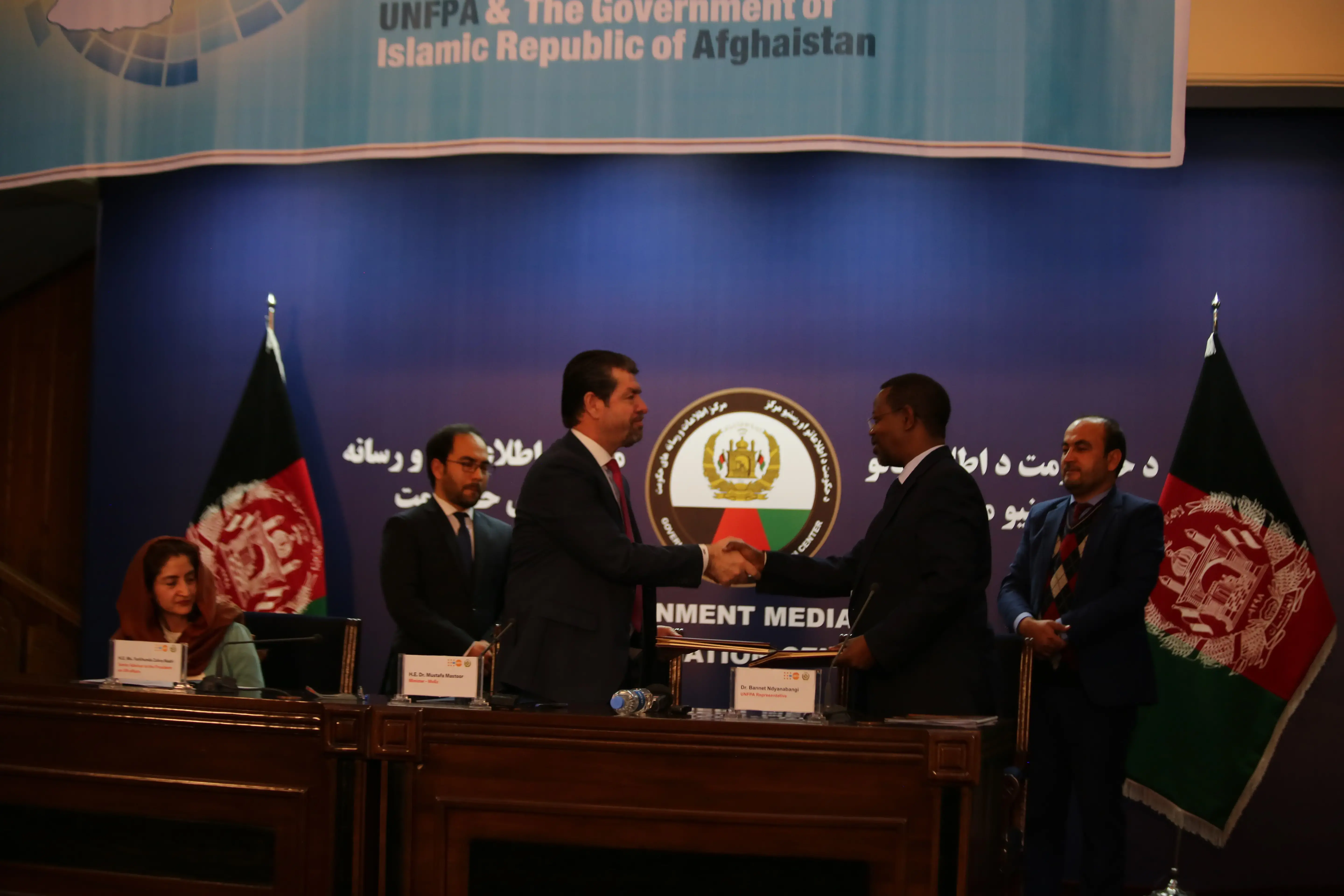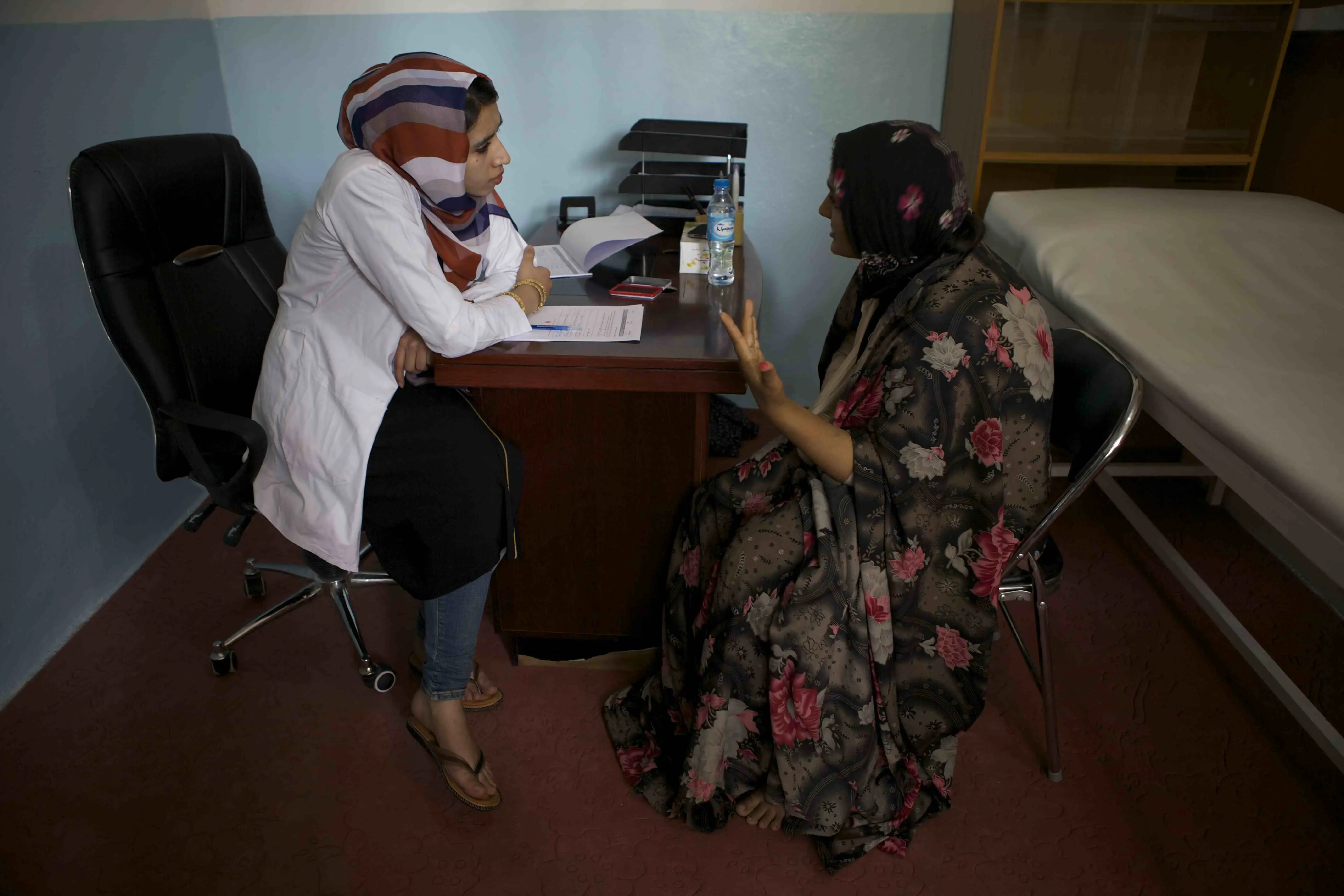UNFPA Afghanistan supported the third session of the Afghan Youth Parliament held on 6-8 December 2018 at Parliament House in Kabul. The event, which was inaugurated by Second Vice President H.E Danish, brought together young people from all across the country to discuss issues affecting their lives such as youth employment, education, health and participation.
UNFPA works with the National Parliament and the Deputy Ministry of Youth to involve young people in decision-making processes.
“The potential for youth to contribute to the development of their communities is largely untapped – many young people remain disengaged and ill-equipped to take part in meaningful civic participation” says UNFPA Adolescent and Youth Specialist, Dr. Noor Murad.
The Afghan Youth Parliament – launched in 2016 with the support of UNFPA and other stakeholders – seeks to fill that gap through educating young people about parliamentary procedures and building their capacity to identify challenges and solutions to issues affecting their lives.
Afghanistan has one of the youngest and fastest growing populations in the world – with approximately 63 percent of the population (27.5 million Afghans) below 25 years of age and 46 percent (11.7 million children) under 15 years of age according to the National Statistics and Information Authority (NSIA).
Globally, youth generally have few opportunities to have a say on issues that concern them – this is contrary to the United Nations Convention on the Rights of the Child, which accords them rights and responsibilities, to include free expression of their views and full participation in matters that impact them.
118 representatives between the ages of 18 and 30 were elected from youth councils, organizations and civil society for a two-year tenure to the Afghan Youth Parliament. They took part in plenary sessions organized around commission groups to discuss and make recommendations on various issues affecting youth.
“The parliament is a powerful platform for young people – it is our only hope to make our voices heard,” said Deputy Speaker Ms. Khalida Khalwat, a 29-year-old student from Takhar province.
According to Dr. Murad, the platform will help ensure that youth become an integral part of the work of their communities and could contribute to the realization of the youth demographic bonus in Afghanistan – through young people’s involvement in rights-based policies, health matters, skills development, employment and the promotion of gender equality with a focus on girls’ education as a way to break the intergenerational cycle of poverty.
Prior to the parliament’s inception two years ago, there was no established system to bring the youth voice to the fore after three decades of war in Afghanistan. It is therefore an essential forum giving young people a stake in shaping Afghanistan’s future.
“For sustainability, the Afghan Youth Parliament should be institutionalized by the government and monitored by independent entities such as the United Nations,” proposed Ms. Khalwat.
The opportunity to discuss policy means that Afghan youth are not only exercising their democratic rights but also engaging in advocacy to bring about social change through meaningful representation.
“With almost half of the country’s population below 15 years of age, we cherish the contribution of young people to a peaceful and prosperous Afghanistan,” said UNFPA Representative Dr. Bannet Ndyanabangi.




